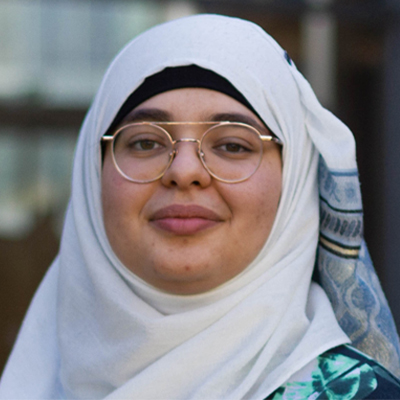Raw Materials
This research axis aims to diversify raw material supply sources by further valorizing softwood and sawmill residues and identifying new sustainable sources of fiber supply from forest, urban, and agricultural biomass.
Project Identification: AXE1M2
Theme: Optimization
Status: In progress since January 2024
Détails
Student: Imenne Drif
Supervisor: Rémi Georges (Université Laval)
Co-supervisor: Mark Irle (École Supérieure du Bois - ESB, France)
Collaboration: Aziz Lagdhir (SEREX), Fabrice Roussière (FPInnovations)
Industry Partners: FPInnovations, Arbec Forest Products
Research Partners: Renewable Materials Research Centre (CRMR), ESB, SEREX
Email: imenne.drif.1@ulaval.ca
Description
According to oriented strand board (OSB) manufacturers, a significant percentage of raw material is lost each year in sawmill yards in the form of broken stems and their trims. In the context of competition for available forest resources and increasing fiber supply costs, it is recommended to innovate and develop equipment or processes to transform available waste into value-added products, such as strands. The challenge of producing good quality strands from wood residues arises from the difficulty of handling them in a way that the direction of their grain is parallel to that of the strander knives, as well as maintaining them in this position during the stranding operation. Furthermore, no turnkey transformation system is available in the market to address this identified need.
This project aims to develop equipment or a process for producing good-quality strands from bucking off-cuts and broken stems found in the sawmill yard as a result of feedstock operations. It also seeks to evaluate the dimensions of the strands and their impact on the properties of OSB.

Student: Imenne Drif
Project Identification: AXE1M20
Theme: Recycling and decontamination
Status: In progress since September 2024
Details
Student: Rania Jemni
Supervisor: Évelyne Thiffault (Université Laval)
Co-supervisor: Papa Diouf (SEREX)
Collaboration: Alain Cloutier (Université Laval), Jean-Philippe Jacques (Innofibre), Olivier Rezazgui (Innofibre), Rosilei Garcia (Université Laval), Williams Slim Belhadef (Innofibre)
Industry Partners: To be determined
Research Partners: Réseau Québécois sur l’Énergie Intelligente (RQEI), Renewable Materials Research Centre (CRMR), SEREX, Innofibre
Email: rania.jemni.1@ulaval.ca
Description
This project aims to study post-consumer particleboard and explore its potential as a biomass source for bioenergy production. These particleboards, discarded after their life cycle in industrial or domestic uses, present recycling challenges due to synthetic resins and additives. The project aims to assess post-consumer particleboard's chemical and physical properties to optimize its conversion into bio-oil, bio-char, and syngas by thermochemical processes. This will enable these wastes to be reused in a circular economy and contribute to reducing greenhouse gas emissions and promoting the sustainable use of forest resources. The project involves collaboration with various industrial and institutional partners in the renewable energies and bioeconomy sectors.
Student: Rania Jemni
Project Identification: AXE1DOC1
Theme: Optimisation - Diversification
Status: In progress since January 2024
Details
Student: Rolando A. Montenegro Muro
Supervisor: Alain Cloutier (Université Laval)
Co-supervisor: Ahmed Koubaa (UQAT)
Collaboration: Aziz Laghdir (SEREX), Martin-Claude Yemele (NRCan), Rosilei Garcia (Université Laval)
Industry Partners: FPInnovations, Arbec Forest Products
Research Partners: Renewable Materials Research Centre (CRMR), SEREX
Email: rolando.montenegro-muro.1@ulaval.ca
Description
In Canada, Oriented Strand Board (OSB) is typically produced from small-diameter hardwoods such as trembling aspen and paper birch. Despite the abundance of softwood resources in Eastern Canada, they are less commonly used for this purpose. However, utilizing softwoods in OSB panels offers economic advantages to the Canadian industry. Diversifying the resource base reduces dependence on a limited number of species, contributes to better forest resource management, and enhances the security of wood supply for consistent production at competitive prices.
This project aims to optimize the proportion of softwood and hardwood in OSB panel production, considering density, strand geometry, and the physical and mechanical properties of the panels. The analysis of internal porosity using X-ray computed tomography (CT scanner) and its interaction with OSB panel performance are also considered.

Student: Rolando A. Montenegro Muro
Project Identification: AXE1DOC5(SPD)
Theme: Recycling and decontamination
Status: In progress since June 2024
Details
Postdoctoral Fellow: Gustavo Enrique Rodriguez Rivero
Supervisor: Alain Cloutier (Université Laval)
Collaboration: Ahmed Koubaa (UQAT), Martin-Claude Yemele (RNCan), Papa Diouf (SEREX), Qilan Fu (FPInnovations), Rosilei Garcia (Université Laval)
Industry Partners: FPInnovations, SACOPAN, Tafisa, Uniboard
Research Partners: Renewable Materials Research Centre (CRMR), SEREX, UQAT
Email: gustavo-enrique.rodriguez-rivero.1@ulaval.ca
Description
The management, disposal, and decontamination of particleboard and MDF residue from secondary processing or post-consumer sources present significant environmental and economic challenges for the wood-based composite panel industry. These residues contain mechanical contaminants (metals) and chemical substances such as formaldehyde-based resins and additives, making them difficult to recover. As a result, they are often disposed of through incineration or landfilling. The recovery and utilization of these residues in producing new panels can offer a promising and more environmentally friendly valorization path, enabling panel manufacturers to reduce the consumption of virgin raw materials, extend the carbon sequestration period in wood products, and adopt a circularity model.
In this context, this project aims to develop a recycling process for particleboard and MDF residues into new panels, providing companies in the sector with a better alternative than incineration or landfill disposal.
Stagiaire postdoctoral: Gustavo Enrique Rodriguez Rivero
Project Identification: AXE1M1+M12
Theme: Recycling and decontamination
Status: In progress since May 2024
Details
Student: Dorsaf Rafraf
Supervisor: Ahmed Koubaa (UQAT)
Co-supervisor: Martin-Claude Yemele (NRCan)
Collaboration: Aziz Laghdir (SEREX)
Industry Partners: FPInnovations, Tafisa, Uniboard
Research Partners: Renewable Materials Research Centre (CRMR), SEREX
Email: rafd01@uqat.ca
Description
Currently, there is no official classification of Construction, Renovation, and Demolition (CRD) wood at recycling centers in Quebec. The Best Practices Guide published by the Regroupement des récupérateurs et des recycleurs de matériaux de construction et de démolition du Québec (3R MCDQ) recommends categorizing CRD wood into three groups based on the type of wood, its origin, and its level of contamination: Quality-1 for unpainted or untreated wood scraps and uncontaminated lumber, Quality-2 for painted, stained, or varnished wood, melamine, MDF, HDF, particleboard, plywood, pallets, veneer, etc., and Quality-3 for treated wood. Quality-1 residues are intended for recycling in particleboard manufacturing, while lower-quality residues are typically used for energy recovery. However, additional categories can be added to this classification to maximize the recovery of post-consumer wood and better meet the needs of the particleboard industry. Furthermore, the classification of CRD wood is inconsistent from one recycling center to another. The separation of treated wood is sometimes inefficient, making it challenging to control the quality of residues in particleboard plants.
This project proposes developing an effective separation process for treated wood and the characterization and development of uniform classification criteria for CRD wood chip residues from recycling centers intended for recycling in particleboard manufacturing.
Student: Dorsaf Rafraf
Project Identification: AXE1M7+M13
Theme: Optimisation – Diversification
Status: In progress since January 2025
Details
Student: Mario Israel Sanchez Mercado
Supervisor: Alain Cloutier (Université Laval)
Co-supervisor: Évelyne Thiffault (Université Laval)
Collaboration: Rosilei Garcia (Université Laval), Flavia Braghiroli (UQAT)
Industry Partners: Arbec Forest Products, Tafisa, Uniboard
Research Partners: Renewable Materials Research Centre (CRMR), UQAT
Email: mario-israel.sanchez.1@ulaval.ca
Description
Upcoming
Student: Mario Israel Sanchez Mercado
Project Identification: AXE1M11(DOC)
Theme: Diversification
Status: In progress since January 2025
Details
Student: Imen Soudani
Supervisor: Alain Cloutier (Université Laval)
Co-supervisor: Martin-Claude Yemele (RNCan)
Collaboration: Ahmed Koubaa (UQAT), Rosilei Garcia (Université Laval)
Industry Partners: Uniboard
Research Partners: Renewable Materials Research Centre (CRMR)
Email: imen.soudani.1@ulaval.ca
Description
Partially substituting wood fibers with non-traditional natural fibers, such as flax, hemp, switchgrass, and corn stover, in manufacturing panels can offer several advantages. These include increased mechanical strength, lighter panels, and improved thermal and acoustic insulation properties. Flax and hemp fibers, for example, are known for their high tensile strength, which could help to reinforce MDF panels. Additionally, these fibers are generally lighter than wood fibers, which could reduce the panel's overall weight. Moreover, non-traditional fibers are advantageous for applications in the construction sector due to their thermal insulation properties. However, their use in MDF panels is still limited in optimizing manufacturing parameters to guarantee panel performance.
This project aims to optimize the manufacturing process to use non-traditional natural fibers as reinforcements for MDF panels by partially replacing wood fibers. This approach aims to lower the panels' density and create a lighter product.
Student: Imen Soudani
Identification du projet: AXE1M21(DOC)
Thème: Diversification
Statut: En cours depuis septembre 2024
Détails
Étudiant: Louis-David Giasson
Direction: Alain Cloutier (Université Laval)
Codirection: Isabelle Duchesne (RNCan)
Collaboration: Véronic Landry (Université Laval)
Partenaires industriels: Uniboard
Partenaires de recherche: Centre canadien de la fibre de bois (CCFB - RNCan), Centre de recherche sur les matériaux renouvelables (CRMR)
Courriel: louis-david.giasson.1@ulaval.ca
Description
Dans le contexte actuel des changements climatiques, un volume croissant de bois est affecté par les perturbations naturelles, telles que les feux de forêt et les épidémies d’insectes ravageurs. Pour évaluer la valeur économique du bois endommagé, il est important de comprendre les impacts de son utilisation pour les produits du bois. Actuellement, il existe très peu d'études pour justifier l’utilisation de bois issus de perturbations naturelles par l’industrie des panneaux. L’objectif de ce projet est d'évaluer la possibilité d'utiliser ce type de bois dans la fabrication de panneaux et d'évaluer les impacts potentiels sur leurs performances. Des panneaux de particules de bois seront fabriqués à partir d'arbres récoltés après un feu de forêt et d'arbres affectés par la tordeuse des bourgeons de l'épinette, afin d'en évaluer les propriétés physiques et mécaniques. L'objectif sera également de valoriser cette biomasse actuellement peu exploitée.
Étudiant: Louis-David Giasson
Project Identification: AXE1SPD3
Theme: Recycling and decontamination
Status: In progress since April 2024
Details
Postdoctoral Fellow: Morgan Lecoublet
Supervisor: Ahmed Koubaa (UQAT)
Collaboration: To be determined
Industry Partners: Arbec Forest Products, Tafisa, Uniboard
Research Partners: Renewable Materials Research Centre (CRMR)
Email: morganlouisjean.lecoublet@uqat.ca
Description
The recycling of panel residues, mainly particleboard and MDF, remains a significant challenge for the sector, as they contain polymerized formaldehyde in resin form (classified as Category D2A toxic material) and coatings (e.g., PVC or melamine paper), among other contaminants. Recycling these residues into new products, such as wood-plastic composites, is a promising avenue to explore. Using recycled panels to manufacture wood-plastic composites would reduce the quantity of plastic, the carbon footprint, and the negative environmental impact of the thermoplastic part and make it possible to manufacture high-performance, sustainable products from a low-cost raw material. On the other hand, the panel industry would benefit from more sustainable management of panel residues, a reduction in the amount of waste sent to landfill or incineration, helping the sector to meet environmental requirements and regulations relating to the disposal of hazardous residual materials, and demonstrating its commitment to sustainable development and environmental responsibility.
This project aims to assess the technical feasibility of recycling panel residues (particleboard, MDF, and OSB) and panels at the end of their life cycle in manufacturing wood-polymer composites to reduce panel waste and give them a second life cycle.

Postdoctoral Fellow: Morgan Lecoublet
Stages de premier cycle
Status: Not started
Date: May 05 to August 31, 2025
Details
Student: Manar Ayari
Program: Institut Polytechnique privé des sciences avancées de Sfax (IPSAS), Tunisia
Supervisor: Ahmed Koubaa (UQAT)
Co-supervisor: Chedly Bradai (IPSAS), Mohamed Khlif (IPSAS)
Industrial Partners: To determine
Research Partners: To determine
Email: manar.ayari@ipsas.tn
Description
This research project is funded by MITACS Globalink. It aims to characterise the chemical properties of thermomechanical process (TMP) fibres obtained from MDF panels using a weak acid-assisted hydrothermal process. The research project has three main objectives: 1) to identify the chemical properties of recovered TMP fibres, in particular the proportions of constituents (lignocellulosic components and residual UF resin); 2) to assess the influence of the use of weak acid and temperature on the proportions of different fibre constituents; and 3) to investigate the possible chemical modification of TMP fibres when high temperature and weak acid are used together.